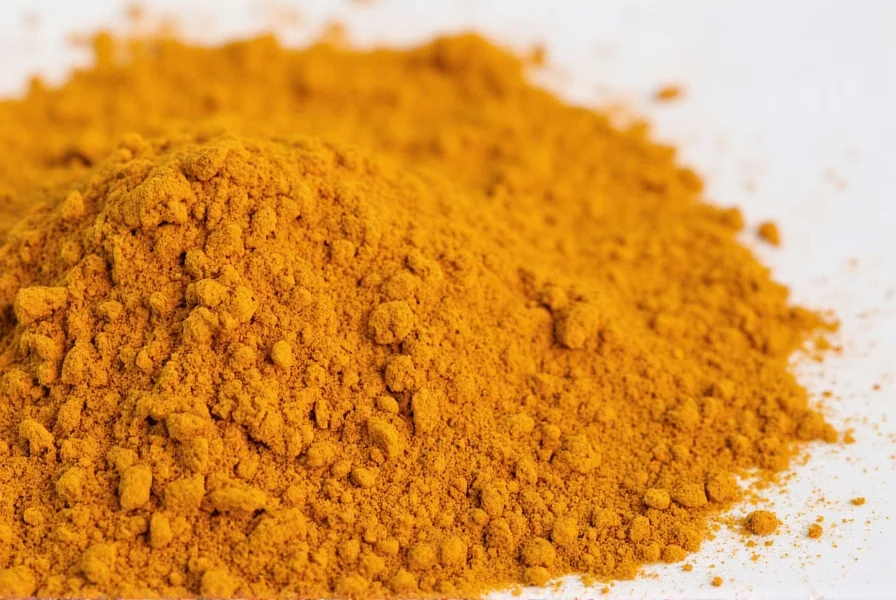Natural remedies for gastroesophageal reflux disease (GERD) have gained significant attention as people seek alternatives to conventional medications. Turmeric, a vibrant yellow spice commonly used in cooking and traditional medicine, has emerged as a potential option many wonder about. Understanding the relationship between turmeric and GERD requires examining both the theoretical benefits and potential risks based on current scientific understanding.
Understanding GERD and Natural Remedy Interest
GERD affects approximately 20% of the U.S. population, causing uncomfortable symptoms like heartburn, regurgitation, and chest pain. While proton pump inhibitors and H2 blockers remain standard treatments, many individuals explore natural approaches due to concerns about long-term medication use or seeking complementary options. This growing interest in natural GERD remedies has put turmeric under the spotlight.
Turmeric Composition and Potential Mechanisms
Turmeric (Curcuma longa) contains curcuminoids, with curcumin being the primary active compound responsible for its yellow color and potential health benefits. Curcumin demonstrates:
- Anti-inflammatory properties that might reduce esophageal inflammation
- Antioxidant effects that could protect digestive tract tissues
- Potential modulation of stomach acid production
- Effects on digestive enzyme activity
These properties theoretically suggest turmeric might help with GERD symptoms, but human evidence remains limited.
Current Scientific Evidence on Turmeric for GERD
Research specifically examining turmeric's effects on GERD is scarce. Most evidence comes from:
| Study Type | Findings Related to Digestive Health | GERD-Specific Evidence |
|---|---|---|
| Animal studies | Shows reduced inflammation in digestive tract | Not directly applicable to human GERD |
| In vitro research | Demonstrates anti-inflammatory effects on cells | No direct GERD application |
| Human studies on digestion | Suggests potential benefits for functional dyspepsia | Limited to non-GERD digestive issues |
| Human GERD studies | Extremely limited research available | No conclusive evidence for GERD treatment |
A 2020 review in the Journal of Gastroenterology and Hepatology noted that while curcumin shows promise for various digestive conditions, specific research on GERD remains insufficient to draw conclusions. The authors emphasized the need for targeted clinical trials.
Potential Risks of Turmeric for GERD Sufferers
Contrary to popular belief, turmeric might actually worsen GERD symptoms for some individuals. Several factors contribute to this possibility:
- Stomach acid stimulation: Turmeric may increase gastric acid production in certain people, potentially exacerbating reflux symptoms
- Spice content: As a spice, turmeric could irritate the esophagus in sensitive individuals
- Formulation issues: Many turmeric supplements contain piperine (black pepper extract) to enhance absorption, which might trigger heartburn
- Delayed gastric emptying: Some research suggests curcumin might slow stomach emptying, potentially worsening reflux
A clinical case report published in Clinical Gastroenterology and Hepatology documented a patient whose GERD symptoms significantly improved after discontinuing turmeric supplements, suggesting potential adverse effects in susceptible individuals.
Safety Considerations and Medication Interactions
Before considering turmeric for GERD management, understand these important safety aspects:
- Medication interactions: Turmeric may interact with blood thinners, diabetes medications, and acid-reducing drugs
- Dosage concerns: High doses (typically above 8 grams daily) have been associated with gastrointestinal discomfort
- Quality variability: Turmeric supplements vary widely in curcumin content and bioavailability enhancers
- Pregnancy considerations: Generally safe in food amounts but caution advised with supplements
The National Center for Complementary and Integrative Health states that while turmeric is generally safe in culinary amounts, high-dose supplements may cause digestive upset in some people - a significant concern for those already managing GERD symptoms.
Practical Guidance for Those Considering Turmeric
If you're exploring turmeric as part of your GERD management strategy, consider these evidence-based recommendations:
- Start with culinary amounts in food rather than supplements
- Monitor symptoms carefully when introducing turmeric
- Avoid taking turmeric on an empty stomach
- Choose supplements without piperine if you decide to use them
- Discuss with your healthcare provider before starting any new supplement
- Never replace prescribed GERD medications with turmeric without medical supervision
Remember that individual responses vary significantly. What helps one person with GERD might worsen symptoms for another. Keeping a detailed symptom journal can help identify whether turmeric affects your condition positively or negatively.
Conclusion: Balancing Potential Benefits and Risks
While turmeric's anti-inflammatory properties make it an intriguing candidate for GERD management, current scientific evidence doesn't support its use as a reliable treatment. The potential for turmeric to worsen symptoms in some individuals means caution is warranted. The most effective GERD management typically involves a combination of lifestyle modifications, prescribed medications when necessary, and evidence-based approaches under medical supervision.
As research continues to evolve, we may gain clearer insights into turmeric's role in digestive health. Until then, approach turmeric for GERD with realistic expectations and prioritize consultation with healthcare professionals who understand your specific health situation. Natural doesn't always mean safe or effective, especially when managing chronic conditions like GERD.











 浙公网安备
33010002000092号
浙公网安备
33010002000092号 浙B2-20120091-4
浙B2-20120091-4